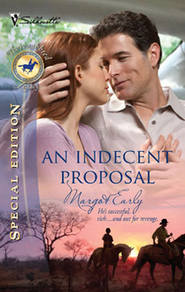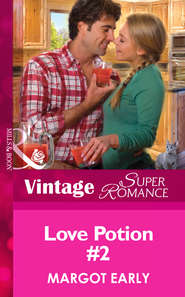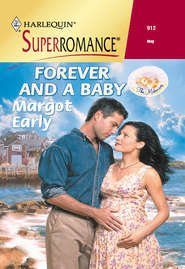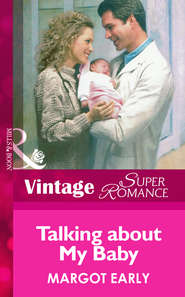По всем вопросам обращайтесь на: info@litportal.ru
(©) 2003-2024.
✖
The Things We Do For Love
Автор
Год написания книги
2018
Настройки чтения
Размер шрифта
Высота строк
Поля
“And the heroine falls right into the act with him,” Cameron said, remembering. “Then, the corrupt Mexican military dude forces them at gunpoint to marry, with the seedy guy presiding as J.P.,” she filled in excitedly. “Then, the hero persuades her to keep up the pretense of the marriage—”
“Without ever consummating it—”
“For patriotic reasons involving espionage. Yes, I want that one,” Cameron decided. “Do you think Nanna has made us strange? I mean, she made your mother and my mother strange.”
Mary Anne had little interest in this topic. Her parents lived in Florida and she lived in West Virginia. Another continent might be preferable, but you couldn’t have everything. “Do you think the love potion will work?” she asked. “No, I’m stupid. There’s no way it can.”
“Paul says they do work. He says it’s scary.”
“For someone terrified of commitment, I’m sure it is.”
“It’s like this, Mary Anne. I work in a job that encourages me to believe romance is silly, marriages don’t last and happily ever after is a mundane matter of avoiding men who beat you. But your parents are still married and so are mine.”
“Would you be in my mother’s marriage?” Mary Anne asked.
“No. Nor my own mother’s. I’m just trying to say…” Cameron sighed. “I don’t know what I’m trying to say. Except that even if the love potion doesn’t work, you shouldn’t stop believing you can have an excellent future with someone.”
“That’s the most depressing thing I ever heard.” It was depressing because she wasn’t in love with a random someone. She wanted Jonathan Hale. “So can you, by the way. Have an excellent future with someone.”
“It doesn’t matter for me. I want to adopt children. I’m not a marriage-or-nothing-else kind of person.”
“And I am?”
Cameron said what Mary Anne knew on some level to be true. “Yes.”
Mary Anne tried to think of a treasured possession she was willing to sacrifice toward the goal of achieving her heart’s desire. What were her most treasured possessions? She treasured the quilt Nanna had made for her and given her when she graduated from Columbia. No way would that find its way to Graham Corbett’s bedroom—a place she pondered only briefly as an imagined horror of dirty underwear and stinky men’s running shoes. What else did she treasure?
Cameron said, “So you’re going to bestow all these things on Graham Corbett?”
“Yes. I detest him.”
“I’m not sure that’s the message you’ll convey.”
Mary Anne heard a slight strain in Cameron’s voice.
She really likes him.
A brainstorm occurred to her. “How’s this? For the really nice thing I’m going to do for him?”
Cameron said nothing, just waited.
“I’ll set him up with you!”
Cameron muttered something entirely uncharacteristic. “I don’t think I’m his type.”
“But don’t you want to go out with him?”
“I want him to want to go out with me,” Cameron corrected.
“He’s truly a jerk, dear cousin. You have no idea. He says the most offensive things to me.”
“I’ve heard some of them,” Cameron replied, sounding more dejected. “It’s called flirting, Mary Anne.”
“Oh, no, it’s not!” Mary Anne replied. “But if you’re game, I can do a thing for him that is far better than he deserves, and set him up with wonderful you.”
Cameron shrugged, as if she already knew that Graham would refuse. “Sure.”
THE VALUED POSSESSION that Mary Anne decided to sacrifice was Flossy. It was ridiculous for a thirty-two-year-old to be so attached to a stuffed white rabbit with plastic fangs. She’d received it as a twenty-first birthday present from her college boyfriend, and she’d learned afterward that it had been made because of something to do with Monty Python. Her boyfriend had loved Monty Python, but she’d never watched the shows and thought they were stupid. Nonetheless, she’d absolutely fallen in love with Flossy, who her boyfriend had always called “the fluffy little bunny rabbit.”
It was going to have to be Flossy. Mary Anne would give it to Graham anonymously. He probably liked Monty Python. She could part with a stuffed animal in the cause of securing the love of Jonathan Hale.
The kind word would be easy. She’d choke down the bile that would inevitably rise to her throat and tell Graham Corbett that his advice to the woman with the mean fiancе had been good. Then she’d set him up with Cameron. What did her cousin see in the man?
GRAHAM CORBETT stopped by the radio station at nine the next morning. His plans for the day included working on his book, the first self-help book he’d ever set out to write. He already had a contract with a major publisher; because of the nationwide broadcasts of his radio show, not to mention a few appearances on national television talk shows, his name recognition—and face recognition—had helped to sell this first project, Life—and Love—with Graham Corbett.
He had noticed the irony, given that his own love life was thin on the ground. He knew all the reasons that was the case. Briony’s death had left him shaken. Not the grief—he had experienced the grief, lived through it. No, it was the way he’d come unraveled, the destruction he’d allowed his emotions to wreak on his life. After a thing like that…Well, he was uneasy about truly binding himself to a woman again.
Uncharacteristically, Mary Anne Drew was at the station when he arrived. He gathered, from her interaction with Jonathan Hale, that she’d just recorded one of her essays. The essays were great. They painted Appalachian life in familiar colors and seemed to always strike an emotional chord. The woman could write and she had a good radio voice, a distinctive alto.
But what did she see in Jonathan Hale? As he stopped near his In basket, Graham could almost feel the longing in Mary Anne…for Hale. She was desperate, no doubt because of the engagement.
Well, whatever.
He stared at his In tray. In it sat a white plush rabbit with vinyl fangs. It was the Killer Rabbit of Caerbannog from Monty Python and the Holy Grail, but it wasn’t his. He picked it up bemusedly and addressed Mary Anne and Hale, the only other people at the station. “Whose is this? It was in my In tray.”
“Then, it must be yours,” Hale replied. “Perhaps you have a secret admirer.” He chimed in then with a near-perfect imitation of the appropriate section of the movie. Mary Anne laughed, and even her laughter, Graham noticed, seemed desperate.
Graham held the rabbit toward Mary Anne. “Do you know anything about this?”
Her face flushed, but it was probably because Hale had just put his hand on her shoulder and said, “Great essay.”
Mary Anne shook her head at Graham.
Graham shrugged and tucked the rabbit under his arm as he collected the other things in his tray. Better not pay too much attention to Mary Anne. She didn’t like him, and it bothered him that she had gotten under his skin a bit. Being attached to a woman was something he didn’t need. Occasional dates, sure. But the rest…
What had happened after Briony’s death still made him ashamed. Drunkenness, failure to appear at appointments or for studio engagements, random couplings with virtual strangers, a sort of unconscious yet full-power course of life destruction. One morning, he had actually awoken naked and hungover on the university athletic field with a broken ankle, like a character from a Tennessee Williams play. And why this descent into debauchery? Because he’d loved her so much? Even after half a year in a grief group and hours of counseling he wasn’t sure. He thought it was the shock of death itself. That someone could be there—then gone. His father had passed away a year after Briony, but that had touched him less. His father’s life had been a celebration, and it hadn’t shocked Graham when an eighty-year-old man slowly dying of asthma had stopped breathing and then become free. Briony’s death had been a different situation. A young woman, vibrantly, almost indecently healthy, an athlete, her life so alive…Then, gone.
And so he’d had to live to the extent of life, had to live so as to constantly court death.
In any case, now his life was ordered as he liked it, and he wanted to hold on to those things that were most precious—his work, his close relationships, his commitment to all that mattered to him.
Jonathan Hale headed for his office, the only actual office at the station—a small room with a view of Stratton Street. Mary Anne said, “Um, Graham. I wanted to talk to you.”
He lifted his eyebrows. Mary Anne never voluntarily spoke to him. And maybe that was part of what needled him about her. Not to mention the sheer waste of her infatuation with Hale.
He stepped toward her. For all his teasing of her, Graham had to admit that Mary Anne Drew was an extraordinarily good-looking woman. She was tall, strong like an Amazon, with straight Florida surfer-girl hair. She could easily have been a model on the basis of her face. Lush dark eyebrows and eyelashes, green eyes, defined cheekbones and chin, generous mouth, a few freckles on that skin that always looked honey-colored. Yeah, he gave her a hard time about her butt, yet it was only because he knew that was the part of her body she disliked the most. He liked it. You could see her glutes, and she wasn’t all skin and bone, like her scrawny cousin.
“I wanted to compliment you on your show yesterday,” Mary Anne said.











